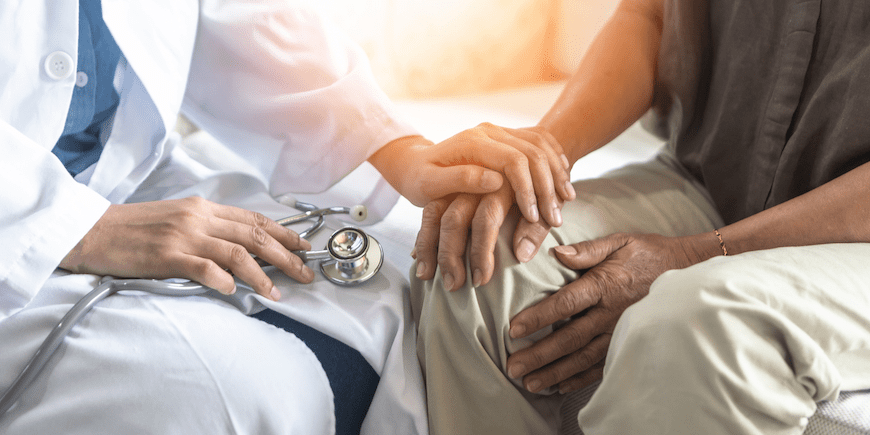New research out of UC San Francisco (UCSF) appears to offer new hope for Parkinson’s patients. University scientists have published a pair of research papers that shed light on an innovation that could offer personalized, 24-hour care with a single implanted device.
This new technology, which the authors have dubbed adaptive deep brain stimulation (aDBS), employs artificial intelligence (AI) to monitor and react to changes in a patient’s brain activity. The device then administers targeted treatment for movement issues during the day and sleep problems at night.
The aDBS system represents a notable leap forward in Parkinson’s treatment via “closed-loop” brain implant technology, which self-regulates electrical stimulation in response to real-time brain activity.
The researchers explain that this technology could augment existing medication treatment by delivering less stimulation when the drug is active, curbing excess movement. It would also boost stimulation to address stiffness as the drug’s effects taper off. This would produce a more balanced, tailored treatment regime and eliminate – or at least scale back – the need for healthcare providers to constantly adjust medication levels.
First Study Shows Feasibility
The latest of the two studies in Nature Medicine involved a clinical trial with four participants, all of whom the researchers had equipped with the aDBS device during their daily activities.
The study compared this new technology with an earlier deep brain stimulation (DBS) system, known as constant DBS (cDBS). In this latest trial, researchers had the participants identify their worst symptoms, which the cDBS system then targeted.
The results showed promise, with the implant curbing symptoms by as much as 50 percent. This, the paper’s authors insist, marks the first successful implementation of a closed-loop brain implant in Parkinson’s patients outside of a lab.
“This is the future of deep brain stimulation for Parkinson’s disease,” explained Philip Starr, MD, the Dolores Cakebread Professor of Neurological Surgery and co-director of the UCSF Movement Disorders and Neuromodulation Clinic.
Starr, one of the study’s lead authors, has played a pivotal role in developing this technology. He’s spent more than a decade drafting ways to detect and record the abnormal brain rhythms that accompany Parkinson’s. And in 2021 it was his research team that isolated the specific brain patterns that correlate to motor symptoms, which paved the way for this new device.
Starr added that only the most recent advancements in AI and neuroscience have allowed his team to build this new device
“There’s been a great deal of interest in improving DBS therapy by making it adaptive and self-regulating, but it’s only been recently that the right tools and methods have been available to allow people to use this long-term in their homes,” he stressed.
Tackling Insomnia
This research follows on the heels of another UCSF study from earlier this year, led by Simon Little, MD, associate professor of neurology. The paper, published in Nature Communications, explored the potential of adaptive DBS to alleviate insomnia — a common, if frustrating, Parkinson’s symptom.
Little’s team ran trials with four Parkinson’s patients and another with dystonia, a similar movement disorder. The study showed that the aDBS device could identify brain activity associated with different sleep states and accurately predict when a patient would wake up.
This discovery paved the way for new ways to manage the non-motor symptoms of Parkinson’s, such as sleep disturbances.
The university research teams, which include graduate student Clay Smyth, are now testing new algorithms to further improve sleep quality for Parkinson’s patients with aDBS.
John Ngai, MD, who runs the Brain Research Through Advancing Innovative Neurotechnologies initiative (BRAIN, get it?) at the National Institutes of Health, stressed how important this work is. He emphasized that this innovative technology embodies the initiative’s commitment to transform how we approach, diagnose, and ultimately treat brain disorders.
“We see that it has a profound impact on patients, with potential not just in Parkinson’s but probably for psychiatric conditions as well,” Starr said in a press release.
Further Reading
Parkinson’s Research Surges Ahead



